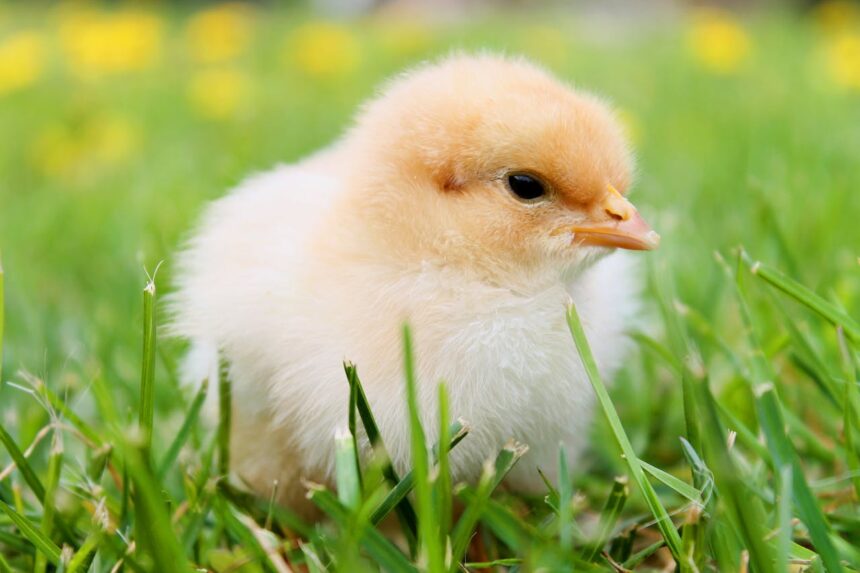Chickens have become increasingly popular among backyard and urban farmers in recent years. Not only do they provide fresh eggs, but they also make great pets and are a natural pest control for gardens. However, raising chickens requires knowledge and preparation, especially if you want to ensure their health and well-being.
In this guide, we’ll cover everything you need to know about chicken care – from picking the right breed to providing the best care and nutrition. Whether you’re just starting out or you’re a seasoned farmer, this article will be your go-to resource for all things chicken-related.
Choosing the Right Chicken Breed
Choosing the right chicken breed is the first step towards successfully raising chickens. Different breeds have distinct characteristics that make them suitable for various purposes. Some breeds are excellent layers, while others are known for their meat quality, and still, others may be more suited as pets due to their friendly demeanor.
Egg Layers
If your primary goal is to get fresh eggs, consider breeds like the Leghorn, Rhode Island Red, or Australorp. These breeds are prolific layers, known for their consistency and high egg production rates. Leghorns, for example, are known to lay white eggs and can produce around 280 to 320 eggs per year. Rhode Island Reds lay brown eggs and are similarly productive, often reaching 250 to 300 eggs annually.
Meat Breeds
For anyone looking to raise chickens for meat, breeds like Cornish Cross, Jersey Giant, and Brahma make great choices. Cornish Cross chickens grow super fast and reach market weight quickly, making them a top pick for commercial meat production. Jersey Giants and Brahmas, though slower to grow, offer larger carcasses and are famous for their rich, flavorful meat.
Dual-Purpose Breeds
Dual-purpose breeds like Plymouth Rock, Sussex, and Orpington are perfect if you’re looking for chickens that give you both eggs and meat. These breeds strike a great balance between egg production and meat quality, making them versatile and friendly choices for small farms and backyard coops.
Friendly Breeds
If you’re on the hunt for chickens that make fantastic pets, check out breeds known for their docile and friendly nature. Silkies, Buff Orpingtons, and Cochin chickens are famous for their calm demeanor, making them perfect companions for families and kids.
Chicken Coop Essentials
Once you’ve picked the perfect breed, the next step is to create a cozy living space. A well-designed chicken coop is key to keeping your chickens happy and healthy.
Space and Ventilation
Make sure your chicken coop has plenty of space for all your feathered friends to stay comfy. Each chicken needs about 4 square feet indoors and 10 square feet outdoors. Good ventilation is key to keeping the air fresh and preventing ammonia buildup from droppings, which can affect your chickens’ respiratory health.
Nesting Boxes and Perches
Nesting boxes are a must for your egg-laying hens! Aim for one nesting box for every 3-4 hens and make sure to line them with clean straw or wood shavings. Don’t forget about perches—chickens love to roost up high where they feel safe. Try installing perches at different heights to keep all your birds happy.
Protection from Predators
Your chicken coop should keep your feathered friends safe from predators like foxes, raccoons, and birds of prey. Use strong materials to build the coop and reinforce any openings with hardware cloth. Adding a secure latch on the coop door will help ensure your chickens stay safe and sound at night.
Proper Nutrition and Feeding
Proper nutrition is key to keeping your chickens healthy and productive. With a balanced diet, they’ll grow well, lay lots of eggs, and have strong immune systems.
Commercial Feeds
Commercial poultry feeds are crafted to meet the nutritional needs of chickens at every stage of life. Starter feed is perfect for chicks, grower feed suits adolescent chickens, and layer feed is ideal for egg-laying hens. These feeds provide the right balance of protein, vitamins, and minerals to keep your chickens happy and healthy.
Supplements and Treats
In addition to commercial feed, consider supplementing your chickens’ diet with fresh fruits and vegetables, grains, and kitchen scraps. However, avoid feeding them toxic foods such as chocolate, avocado, and raw beans. Grit and oyster shells are also important supplements; grit aids in digestion, and oyster shells provide calcium for strong eggshells.
Water Supply
Always make sure your chickens have access to clean, fresh water. Dehydration can cause health issues and lower egg production. Regularly clean their waterers to keep algae and bacteria at bay. Your chickens will thank you!
Health and Wellness
Maintaining your chickens’ health involves regular monitoring, preventive measures, and prompt treatment of any issues.
Regular Health Checks
Regular health checks are important to spot any signs of illness or distress. Keep an eye out for symptoms like lethargy, changes in appetite, unusual droppings, or feather loss. If any chickens seem unwell, it’s best to isolate them to prevent the spread of disease.
Vaccinations and Parasite Control
Vaccinations can help protect your flock from common poultry diseases like Marek’s disease and Newcastle disease. Make sure to consult with a veterinarian to figure out the best vaccination schedule for your chickens. Parasite control is also important; regularly check for lice, mites, and worms, and treat them with the right medications as needed.
Clean Living Environment
A clean coop is essential for preventing disease. Remove manure regularly and replace bedding materials often. Disinfect the coop at least once a year to maintain a healthy living environment for your birds.
Handling and Safety
Proper handling techniques and safety practices protect both you and your chickens from injury.
Handling Chickens
When handling chickens, approach them calmly and confidently. Gently support their body with both hands, making sure you’re not squeezing too tightly. Regular, gentle handling from a young age can help chickens feel more comfortable around humans.
Safety Precautions
Wear gloves when handling chickens to protect yourself from potential scratches and bacteria. Remember to wash your hands thoroughly after handling birds or working in the coop. It’s always a good idea to keep a first aid kit handy for treating minor injuries to yourself or your feathered friends.
Conclusion
Raising chickens can be a rewarding experience that brings fresh eggs, meat, and friendly companionship. By picking the right breed, creating a cozy living environment, and ensuring proper nutrition and health care, you can enjoy all the perks of chicken keeping. Remember, a successful chicken farmer is always prepared and knowledgeable about their flock’s needs. Use this guide as a handy resource, and you’ll be on your way to becoming a confident and capable chicken owner.
(FAQs)
How often should I clean the chicken coop?
It’s a good idea to clean the coop at least once a week. Regular cleaning helps keep the area fresh and reduces the risk of disease and parasites.
Can chickens stay outside in the winter?
Chickens can handle cold weather but need some protection from extreme conditions. Make sure their coop is well-insulated, draft-free, and has plenty of bedding to keep them cozy.
How many eggs can I expect from my hens?
On average, a healthy hen will lay about 250-300 eggs per year. This can vary depending on the breed, age, and overall care.






